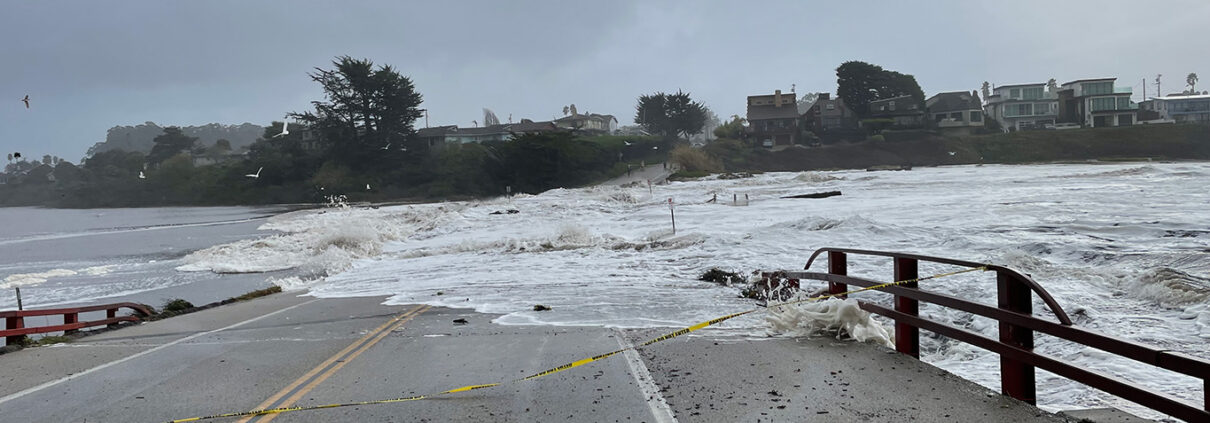The official title of the symposium was “Integrating Risk Science into Nature: A Coastal Climate Resilience Symposium” but, unofficially, the subheader could have been, “Insurance is Sexy!”. While tongue in cheek, it legitimately captures the excitement for nature-positive insurance solutions among a small but growing group of academics, climate adaptation practitioners, and risk management professionals. It also counters the perception that insurance is an unwieldy, dry topic; suggesting, instead, its potential to support transformative climate resilience.
In early 2023, OST collaborated in a unique state-federal, public-private, science-policy collaboration between the California Department of Insurance, UC Santa Cruz’s Center for Coastal Climate Resilience, and the U.S. Army Corps of Engineers to convene a symposium and workshop exploring nature-positive insurance tools, incentivizing adaptation, and improving risk science to reflect equity and nature (see also agenda and slides). While the event included national and international perspectives, a focused discussion also identified opportunities for California to act, including seeding ideas for place-based pilot projects along the coast. Pilot projects are a critical need to advance understanding of what nature-based solutions and insurance tools work together in various contexts for eventual deployment at scale. Developing insurance pilot projects were identified as a priority for the State by the California Department of Insurance’s Climate Insurance Working Group and similarly is reflected in a bill (AB-970) before the State Legislature this year.
View more of the symposium news coverage at KTVU, KSBW, and the Santa Cruz Sentinel
While you can read highlights from the convening in our newly-released summary, OST would highlight a few takeaways from our unique vantage point:
First, investments in natural and social science will be critical to advance understanding the potential for nature-based solutions to reduce risk. A number of lines of inquiry could be pursued including, a statewide assessment of nature-based solution risk reduction potential to identify locations where adaptation projects could yield the greatest and most equitable benefits, strategic investments in a diverse suite of nature-positive insurance pilot projects comprehensively monitored for performance, and institutionalizing monitoring of anticipated investments in coastal nature-based solutions more broadly. This call for science is echoed at the federal level by the White House, “Demonstration projects, research, and long-term observations are needed to continue building a robust evidence base for all types of nature-based solutions and their benefits, and to understand how to adapt solutions to future changes” in their 2022 report, Opportunities To Accelerate Nature-Based Solutions: A Roadmap For Climate Progress, Thriving Nature, Equity, & Prosperity.
Additionally, there is a very clear need for breaking down silos and establishing a shared language between the insurance sector and local governments, community leaders, and nature-based solutions experts. For example, local governments need expertise and technical assistance to understand what insurance tools are available to them and how to apply the tools to improve resilience for the communities they serve. Conversely, the insurance sector needs a better understanding of how local government functions and improved understanding of how nature-based adaptation solutions can reduce risk. Cross-sector convenings, like this event and similar local workshops OST has supported, can begin to break down these silos. But more is needed. Insurance can be sexy and more people should know it.
Banner photograph courtesy of Mike Beck




